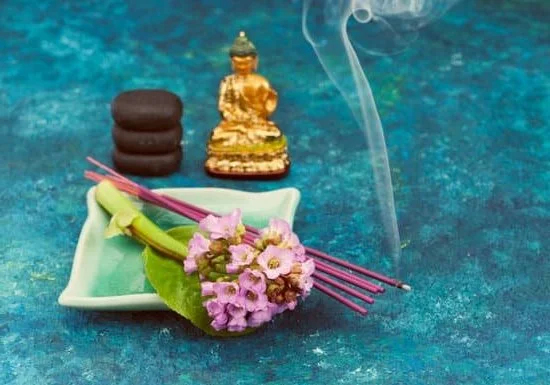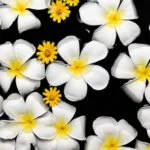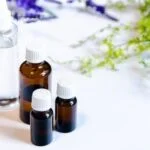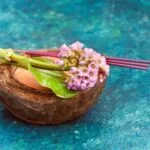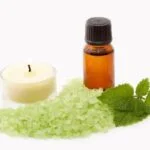Are you looking to delve into the world of aromatherapy and harness the power of essential oils? If so, finding the right essential aromatherapy book is essential. This comprehensive guide will provide an overview of what aromatherapy is and its numerous benefits, as well as tips for choosing the best resources for your needs.
Aromatherapy is a holistic healing treatment that uses natural plant extracts to promote health and well-being. With a history dating back thousands of years, this practice has been used in various cultures around the world for its therapeutic properties. From stress relief to improved mood, there are countless benefits to incorporating aromatherapy into your daily routine.
Essential oils are at the core of aromatherapy and learning about their power is crucial in understanding this practice. Discover how these oils are made, the different types available, and their wide-ranging uses. Whether you’re looking to create calming blends for relaxation or invigorating scents for energy, essential oils can be a powerful tool in promoting overall wellness and balance in your life.
The Power of Essential Oils
Understanding Essential Oils
Essential oils are highly concentrated plant extracts that capture the natural scent and flavor of a plant. They are often used in aromatherapy, a holistic healing treatment that uses natural plant extracts to promote health and well-being. These oils are extracted through various methods, including distillation or cold-pressing, resulting in potent and pure essential oils.
Types of Essential Oils and Their Uses
There are numerous types of essential oils, each with its own unique properties and benefits. For example, lavender oil is well-known for its calming and relaxing effects, while tea tree oil is prized for its antibacterial and antifungal properties. Other popular essential oils include peppermint, eucalyptus, lemon, and rosemary, each offering a wide range of therapeutic uses such as relieving headaches, boosting energy levels, improving digestion, and enhancing mental clarity.
The Essential Aromatherapy Book as a Resource
When delving into the world of essential oils, it is crucial to have a reliable resource to guide you through their uses and applications. An essential aromatherapy book serves as an invaluable tool for both beginners and experienced practitioners, providing comprehensive information on essential oils, their benefits, safety guidelines, blending techniques, recipes for skincare products and remedies for common ailments.
This type of book equips readers with the knowledge they need to harness the power of essential oils effectively and safely. An essential aromatherapy book can also serve as a reference guide for choosing the right oils depending on individual needs or preferences.
Choosing the Right Aromatherapy Book
When choosing an essential aromatherapy book, there are several factors to consider in order to ensure that you are getting the most comprehensive and accurate information about this holistic practice. One important factor to consider is the author’s credentials and expertise in the field of aromatherapy. Look for books written by certified aromatherapists or professionals with a background in herbal medicine, botany, or alternative healing.
In addition to the author’s expertise, it is also essential to choose a book that provides practical guidance on using essential oils safely and effectively. The best aromatherapy books will include detailed information on the properties of different essential oils, their uses, dilution ratios, and potential side effects. Look for books that offer clear instructions on how to use essential oils for various purposes such as massage, diffusing, and creating homemade remedies.
Expert recommendations can also be valuable when choosing an essential aromatherapy book. Many experienced aromatherapists and holistic health practitioners have their own go-to resources that they recommend to clients and students. Seek out reviews and endorsements from trusted sources within the aromatherapy community to help guide your decision.
One highly recommended resource that consistently appears in expert lists of top aromatherapy books is “The Complete Book of Essential Oils and Aromatherapy” by Valerie Ann Worwood. This comprehensive guide covers everything from the history of aromatherapy to practical applications for health, beauty, and emotional well-being. With detailed profiles of over 200 essential oils and recipes for blending your own natural remedies, this book is considered an essential reference for anyone interested in exploring the world of aromatherapy.
Essential Aromatherapy Techniques
Aromatherapy is a holistic healing treatment that uses natural plant extracts, known as essential oils, to promote health and well-being. These essential oils are highly concentrated extracts from various parts of plants such as leaves, flowers, or roots. They are obtained through methods like steam distillation or cold pressing, preserving the natural essence and therapeutic properties of the plants.
When it comes to using essential oils in aromatherapy, there are several techniques that can be employed for maximum benefits. Some of these techniques include:
- Aromatherapy Massage: This technique involves blending essential oils with carrier oils and applying them to the skin through massage. The absorption of these oils through the skin can have both physical and emotional benefits.
- Aromatherapy Diffusers: Diffusing essential oils using a diffuser is an effective way to release their aroma into the air. This method can help purify the air and create a calming or energizing atmosphere depending on the oil used.
- Aromatherapy Baths and Inhalation: Adding essential oils to bathwater or using them in inhalation methods like steam inhalation can provide relaxation and relief from respiratory issues.
With proper education and guidance from an essential aromatherapy book, individuals can learn how to safely and effectively use these techniques to enhance their overall well-being.
Incorporating aromatherapy techniques into one’s daily life can provide numerous benefits for both physical and mental health. From promoting relaxation to improving sleep quality, the power of essential oils is truly remarkable. When practiced with care and understanding, aromatherapy techniques can be a valuable addition to one’s wellness routine. An essential aromatherapy book serves as a valuable resource for anyone seeking detailed information on these techniques and their applications in everyday life.
The Science Behind Aromatherapy
Aromatherapy has been used for centuries as a natural way to promote overall well-being and health. The science behind aromatherapy lies in its ability to affect the brain and body through the use of essential oils. When inhaled or applied to the skin, these aromatic compounds can produce various therapeutic effects.
Numerous studies have shown that certain essential oils can have a direct impact on the areas of the brain that are responsible for controlling emotions, behavior, and even physiological functions such as heart rate, blood pressure, and breathing. For example, lavender essential oil has been found to have calming and relaxing effects when inhaled, making it an effective remedy for reducing anxiety and improving sleep quality.
In addition to its psychological effects, the science behind aromatherapy also involves its physical benefits. Essential oils like eucalyptus and peppermint are known for their decongestant properties, helping to clear nasal passages and improve respiratory function when inhaled. This is why they are commonly used in aromatherapy for respiratory support.
| Scientific Evidence of Aromatherapy Benefits | Source |
|---|---|
| Aromatherapy improves sleep quality | National Center for Complementary and Integrative Health (NCCIH) |
| The calming effects of lavender oil | University of Maryland Medical Center |
Incorporating Aromatherapy Into Daily Life
Using essential oils for relaxation and stress relief is one of the most popular ways to incorporate aromatherapy into daily life. Whether through topical application or aromatherapy diffusers, essential oils such as lavender, chamomile, and ylang-ylang are known for their calming properties. Creating a relaxing atmosphere at home or in the office can be as simple as using a few drops of these essential oils in a diffuser or adding them to a warm bath.
Aromatherapy can also be beneficial for skincare and beauty. Many essential oils have natural antibacterial and anti-inflammatory properties that make them ideal for skincare routines. For example, tea tree oil is known for its acne-fighting abilities, while rosehip oil is celebrated for its anti-aging benefits. By incorporating these essential oils into homemade skincare products or adding them to existing ones, individuals can enhance their beauty routines with the power of aromatherapy.
Improving sleep and mood is another area where aromatherapy shines. Essential oils like clary sage, bergamot, and geranium are recognized for their ability to promote relaxation and balance emotions. Diffusing these oils in the bedroom or using them in an evening massage routine can help create a serene environment conducive to quality sleep. Incorporating these oils into daily rituals can effectively improve overall mood and emotional well-being.
By utilizing the guidance provided in an essential aromatherapy book, individuals can learn more about how to incorporate aromatherapy into daily life with confidence. These books offer valuable information on selecting the right essential oils and applying them effectively to achieve desired results in relaxation, skincare, beauty regimens, improved sleep, mood enhancement, cleaning products creation among other aspects.
DIY Aromatherapy Recipes
When it comes to aromatherapy, creating your own DIY essential oil blends and recipes can be a fun and rewarding experience. Whether you’re looking to create custom scents for relaxation, natural cleaning products, or remedies for common ailments, having a collection of homemade aromatherapy recipes can enhance your overall well-being. Here are some sub-sections to guide you in creating your own DIY aromatherapy recipes.
Homemade Essential Oil Blends
One of the most enjoyable aspects of aromatherapy is experimenting with different essential oils to create unique blends that cater to your specific needs. Some popular homemade essential oil blends include “Stress Relief Blend” using lavender, chamomile, and frankincense oils, and “Energizing Blend” using grapefruit, peppermint, and rosemary oils. By understanding the properties of each essential oil, you can personalize your blends to address issues such as anxiety, fatigue, or even concentration.
Aromatherapy Recipes for Natural Cleaning Products
Aromatherapy isn’t just limited to personal well-being; it can also be incorporated into household cleaning routines. Many essential oils have natural antibacterial and antiviral properties that make them effective ingredients for creating non-toxic cleaning products. For example, a simple all-purpose cleaner can be made by mixing water, vinegar, and tea tree oil. Lemon or orange essential oils can also be added for their fresh scent and degreasing properties when making kitchen cleaners.
Aromatherapy Remedies for Common Ailments
Aromatherapy has been used for centuries as a natural remedy for various ailments. From headaches and muscle pains to respiratory issues and skin conditions, there are countless aromatherapy recipes that can offer relief. For example, a soothing blend of eucalyptus and peppermint oil can help alleviate congestion when used in a steam inhalation or diffuser. Lavender oil is often used as a calming remedy for minor burns or insect bites due to its anti-inflammatory properties.
With the wide array of possibilities in creating DIY aromatherapy recipes, having an essential aromatherapy book on hand can serve as an invaluable resource in guiding you through the process of making your own blends and remedies based on scientific research and expert recommendations. Whether you are new to aromatherapy or an experienced practitioner, having access to reliable information is crucial in mastering the art of blending essential oils effectively for various purposes.
The Ultimate Essential Aromatherapy Book
In conclusion, the world of aromatherapy is a fascinating and beneficial practice that has been used for centuries. From its origins in ancient civilizations to its modern-day application, aromatherapy continues to offer numerous benefits for physical, mental, and emotional well-being. Whether it’s for relaxation, skincare, or alleviating common ailments, essential oils have proven to be powerful remedies.
As we’ve explored in this comprehensive guide, choosing the right aromatherapy book is essential for anyone interested in delving deeper into this practice. With so many options available, it’s important to consider factors such as author credibility, content coverage, and reader reviews when selecting an essential aromatherapy book.
The ultimate essential aromatherapy book brings together all the key elements of this holistic practice. It provides in-depth knowledge on essential oils and their uses, aromatherapy techniques, scientific evidence backing up its effectiveness, and practical DIY recipes for everyday living.
With glowing testimonials from both readers and experts in the field, this definitive guide is sure to enhance your understanding and appreciation of the power of aromatherapy. Whether you are a novice or seasoned enthusiast, the ultimate essential aromatherapy book will undoubtedly become an invaluable resource on your journey towards health and wellness.
Frequently Asked Questions
What Are the 10 Best Essential Oils to Try for Aromatherapy?
The 10 best essential oils for aromatherapy include lavender, peppermint, eucalyptus, tea tree, lemon, chamomile, rosemary, bergamot, ylang-ylang, and sandalwood. Each of these oils offers unique benefits and scents for relaxation and wellness.
What Is the Difference Between Essential Oils and Aromatherapy?
Essential oils are the pure extracts from plants while aromatherapy is the practice of using these oils for their therapeutic benefits. While essential oils are the products themselves, aromatherapy refers to the usage and application of these oils for health and well-being.
What to Avoid When Buying Essential Oils?
When buying essential oils, it’s important to avoid synthetic or artificial fragrances labeled as “essential oils.” Look for pure and natural oils without additives or fillers. Additionally, be wary of misleading marketing claims about an oil’s purity or quality. Always research reputable brands before making a purchase.

Are you looking for a natural way to improve your health and wellbeing?
If so, aromatherapy may be the answer for you.

